
Congratulations to Anastasia Towe, DVM, on winning third place in the graduate student category for her presentation at the UT College of Veterinary Medicine’s Research Day.

Congratulations to Anastasia Towe, DVM, on winning third place in the graduate student category for her presentation at the UT College of Veterinary Medicine’s Research Day.
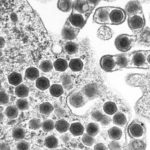
Professor Matt Gray was recently a guest on the Amphibicast podcast. Tune in to hear Dr. Gray discuss the importance of clean amphibian trade!
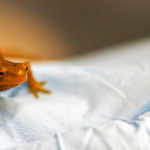
Master’s student and member of the Amphibian Disease Laboratory Adri Tompros has published a paper in Transboundary and Emerging Diseases. Tompros and her colleagues are conducting research on Batrachochytrium salamandrivorans,…
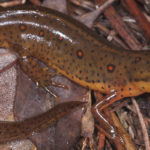
Professor Matt Gray recently spoke on the threat of Bsal at the virtual 86th North American Wildlife and Natural Resources Conference.

Mark Wilber and colleagues from the Amphibian Disease Lab have published a new paper with the British Ecological Society on amphibian pathogen resistance and tolerance.
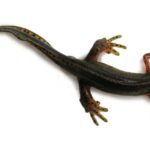
Eastern newt populations in the northeastern United States and southeastern Canada are at greatest risk of infection with a new skin-eating fungus, Batrachochytrium salamandrivorans (Bsal), according to a study published February 18 in the open-access journal PLOS Pathogens by Matthew Gray of the University of Tennessee Institute of Agriculture, and colleagues.
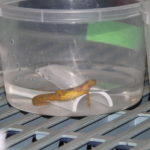
Professors Matt Gray and Deb Miller’s work in the Amphibian Disease Lab centers on preventing the spread of an amphibian pathogen, Bsal, to the United States. Bsal is currently spreading across Europe, and many fear that international pet trade will bring pathogen here. With the Appalachian region being a hotspot for salamander diversity, the Miller-Gray Lab is focused on prevention, detection, and transmission pathways for the pathogen.
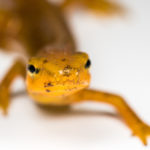
With the recent discovery of the fungal pathogen Batrachochytrium salamandrivorans (Bsal) in Europe, numerous studies are attempting to understand its pathogenicity, and hopefully, ward off infections in other locations. However, there is no standard set of methodologies for studying the pathogen.